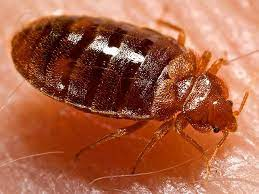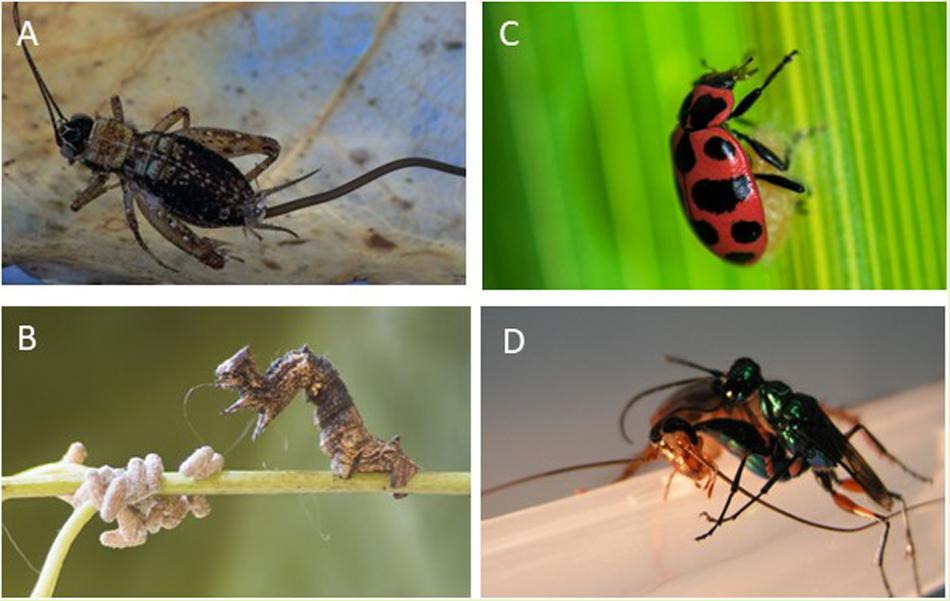The spiritual meaning of parasites refers to the symbolic and metaphorical interpretation of these organisms in the context of spirituality and personal growth. Parasites, in the physical realm, are organisms that thrive by feeding off a host, often causing harm or distress to the host. When examining this phenomenon from a spiritual perspective, it becomes possible to perceive deeper meanings and lessons that can be applied to one’s spiritual journey.
One of the key features of the spiritual meaning of parasites is the idea that they represent external forces or negative energies that attach themselves to individuals, draining their energy and causing imbalances in their lives. These parasites could be symbolic of toxic relationships, unhealthy attachments, or negative habits that hinder personal growth and spiritual development. Just like physical parasites, these spiritual parasites can sap one’s vitality and prevent them from reaching their full potential.
Another significant aspect of the spiritual meaning of parasites is the concept of self-reflection and inner work.
Spiritual Meaning of Parasites
What is the Spiritual meaning of parasites? Parasites are often misunderstood as a negative concept, but that isn’t the case. Parasites are actually beneficial, even essential to life in some cases. There are around 10,000 known species of parasites. Few people though realize that they have a spiritual meaning that only applies to those who follow their own spiritual path.
Parasites have been an integral part of human existence for centuries. From Homer’s Odysseus to Shakespeare’s Cleopatra, parasites have been present in the culture and literature of humankind for generations. Parasites often get a bad rap, but their role in helping humans has helped shape our history and shaped our societal view on life.
Parasites are organisms that live off of other organisms, and the spiritual meaning of parasites is about taking from others to fulfill your own needs.
Prayer Against Parasites
The spiritual meaning of parasites is about taking from others to fulfill your own needs.
When we see a parasite in our life, it is a sign that we may be lacking something. The parasite will cause us to feel like we need something—often to do with our health or well-being—and we will take it from others as a way of filling ourselves up.

The problem with this is that when you take from others in such a way, you are using them and not treating them as equals. This means that the relationship between you and the person who has been helping you may not be as healthy as it could be because they don’t feel like they’re getting anything back for their efforts.
The solution? Instead of looking outward for what you want, try looking inward instead. Focus on yourself and your own needs first before seeking help from anyone else. This will allow you to develop healthy relationships with those around you because everyone involved will feel valued, respected, and satisfied by their interactions with each other!
Parasites are a very common phenomenon in the natural world. They exist in almost every ecosystem, and they can be found on any organism that lives in those ecosystems. They are organisms that live off of another organism without providing any benefit to that organism. They feed off of their host’s food or nutrients, and can cause harm to the host by draining its resources or damaging tissue.
The spiritual meaning of parasites is that they are a metaphor for negative energies that drain us of our energy and peace, leaving us feeling unbalanced and unhappy. If we allow these negative energies into our lives, they will continue to grow and eventually consume us entirely. It is important to be aware of where these energies come from and what they look like so you do not have them enter your soul.
The most common types of parasites are:
- Negative thoughts
- Fearful thoughts
- Envy/jealousy
Mosquito

Banded house mosquito (Culiseta annulata, also known as Theobaldia annulata).N.A. Callow—NHPA/Encyclopædia Britannica, Inc.
These flying insects are all too familiar to most people. What’s little known, however, is that only the female mosquito drinks human blood, which is needed in order to make eggs. While mosquitoes are usually just annoying—the itchy bump left from a mosquito encounter is a reaction to its saliva—some unfortunate people find out that mosquitoes can transmit a number of serious diseases, including yellow fever, malaria, filariasis, and dengue. Which is why mosquitoes are considered one of the world’s deadliest animals.
Flea

This is another pesky but seemingly benign insect that is actually extremely deadly—as in Black Death deadly. These bloodsuckers are believed to have helped cause the bubonic plague that killed a quarter of Europe’s population during the Middle Ages. As infected rats began to die off, fleas turned to humans for blood, thereby transmitting the disease. And you probably thought fleas were just a problem for Fido.
Bedbug

Bedbug (Cimex lectularius) magnified 5×.William E. Ferguson
Sleep tight, don’t let the bedbugs bite. This nursery rhyme fails to convey the true nightmare of bedbugs. Sometimes called the “perfect parasite,” these tiny insects feed at night, often while their victim is asleep, and their bites are painless due to an anesthetizing agent. Later, however, the bite often becomes an itchy welt. Fortunately, bedbugs don’t transmit diseases. Unfortunately, they can be hard to eliminate.
Oxpecker

Why should insects have all the fun? These African birds—also known as tickbirds—perch on cattle and big-game animals while removing ticks, flies, and maggots from their hosts’ hides. This might seem almost nice, until you find out that the oxpeckers also feed on the blood from the host animals’ wounds—preventing the injuries from healing and sometimes creating the wounds themselves.
Vampire Finch

Another bloodthirsty bird, the vampire finch is found on the Galapagos Islands. Though often eating seeds and insects like other finch species, vampire finches also have a taste for blood. Their victim is the booby bird, which surprisingly doesn’t seem to mind being a meal. In fact, the booby often sits patiently as a long queue of vampire finches wait to take a drink.
Leech

Although most people avoid these bloodsucking worms, leeches have long been used in the world of medicine. Into the 19th century, leeches were used to “treat” such conditions as mental illness, tumors, skin disease, gout, and whooping cough. While those treatments are now discontinued, leeches have found new—and proven—uses in modern medicine. Most notably, leeches are used to restore blood flow to damaged veins after an appendage is reattached or a tissue grafted. So, maybe more people should be on Team Leech.
Lamprey

These primitive eel-like animals haven’t changed much over hundreds of millions of years. But, if it ain’t broke, why fix it? Lampreys use their mouths—which are jawless and feature horny teeth—to attach themselves to fish. Once in place, the lampreys feed off their hosts’ blood and tissue. Sometimes a lamprey can stay attached to one fish for weeks. Fortunately, lampreys rarely attack humans.
Vampire Bat

This type of bat, of which there are three species, is the only known mammal whose diet is solely based on blood. Although livestock, birds, and reptiles are its typical targets, humans are occasionally its prey. Vampire bats—which must feed at least every two days—use razor-sharp teeth to make tiny incisions in their victims and then lick the flowing blood. The satiated bats will often regurgitate blood to share with those who are hungry. Who said bloodsuckers were heartless?
Parasites, like ticks and fleas, are not necessarily bad for you. In fact, some parasites are actually beneficial.
For example, hookworms can help treat conditions like Crohn’s disease by keeping your immune system in check. And the parasite schistosomiasis is known to help reduce inflammation in the body—which may be why people who live in areas where the disease is common have lower rates of heart disease.
Even if parasites don’t provide an immediate benefit to your health, they can still have spiritual significance. Parasites can be seen as a way to connect with nature or as a reminder that we’re all interconnected on a deeper level than we realize.
